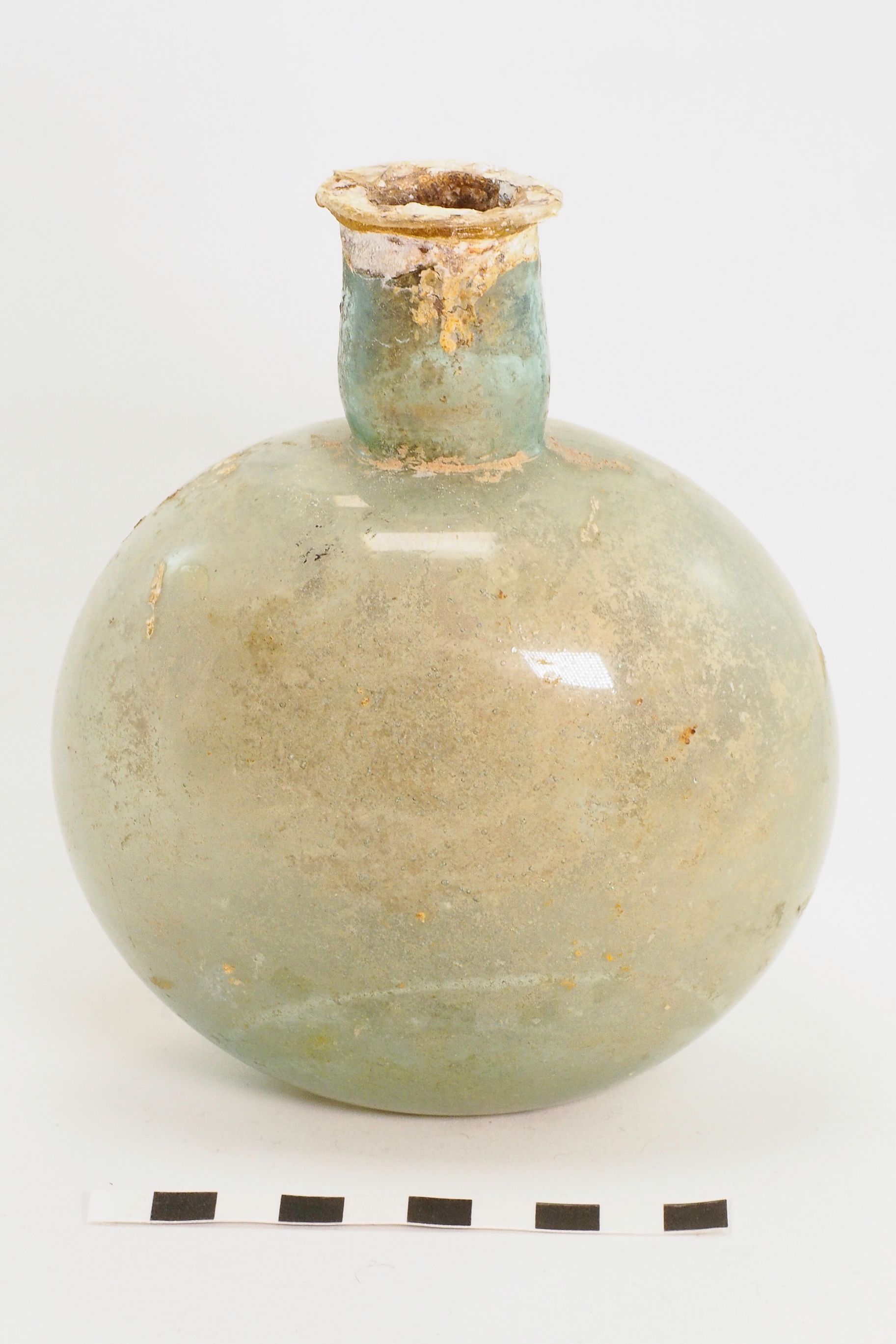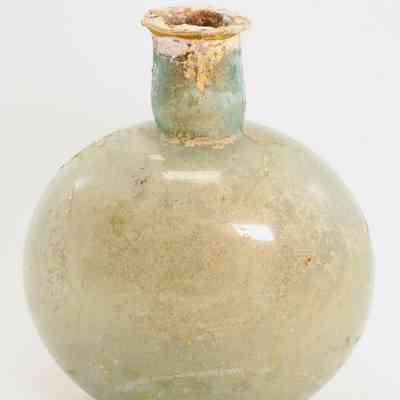Lenticular Flask
Name/Title
Lenticular FlaskEntry/Object ID
11NE-Mi33-171Description
The rim is tubular and uneven due to encrustation. The rim, lip, and neck are not original, they were added at a later date; the original neck likely would have been longer. The short cylindrical neck constricts at the junction with the body. The body is ovoid in its cross-sections with two flattened sides creating a lenticular shape. The base is concave with a pontil mark. The vessel is intact with iridescence, encrustation, and an old collection label to the base.Use
Transportation, Household StorageContext
This shape was in use since the second millennium BCE, when it was used to make pottery flasks. It was especially easy to produce with the blown glass technique as it was achieved by flattening a globular vessel. Since it is a very plain vessel and does not have handles, a carrying case was most likely used to transport the bottle and its liquid contents.Made/Created
Date made
100 CE - 300 CETime Period
Roman ImperialEthnography
Culture/Tribe
Near Eastern - Syro-Palestine

